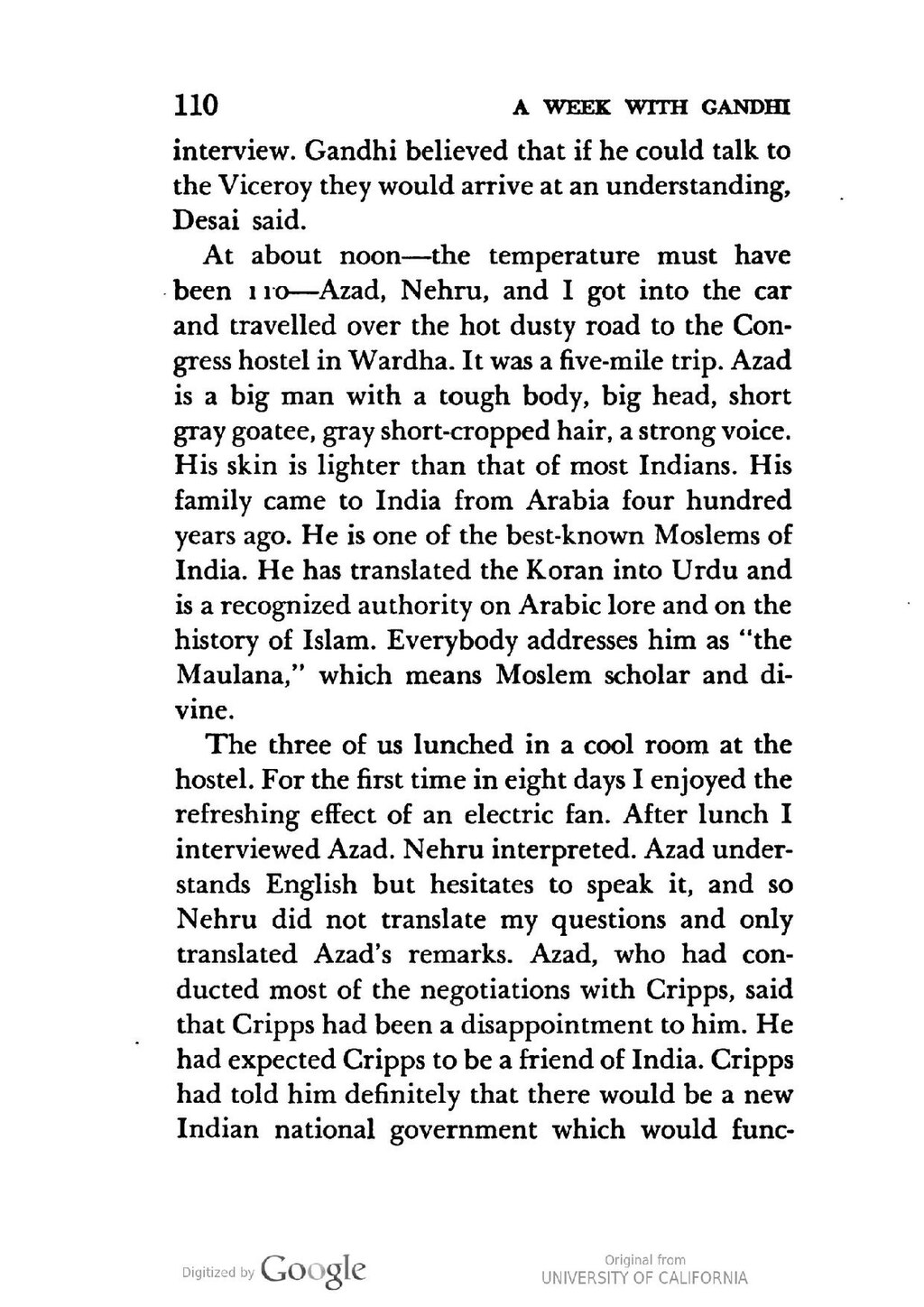interview. Gandhi believed that if he could talk to the Viceroy they would arrive at an understanding, Desai said.
At about noon—the temperature must have been 110—Azad, Nehru, and I got into the car and travelled over the hot dusty road to the Congress hostel in Wardha. It was a five-mile trip. Azad is a big man with a tough body, big head, short gray goatee, gray short-cropped hair, a strong voice. His skin is lighter than that of most Indians. His family came to India from Arabia four hundred years ago. He is one of the best-known Moslems of India. He has translated the Koran into Urdu and is a recognized authority on Arabic lore and on the history of Islam. Everybody addresses him as “the Maulana,” which means Moslem scholar and divine.
The three of us lunched in a cool room at the hostel. For the first time in eight days I enjoyed the refreshing effect of an electric fan. After lunch I interviewed Azad. Nehru interpreted. Azad under stands English but hesitates to speak it, and so Nehru did not translate my questions and only translated Azad’s remarks. Azad, who had conducted most of the negotiations with Cripps, said that Cripps had been a disappointment to him. He had expected Cripps to be a friend of India. Cripps had told him definitely that there would be a new Indian national government which would func-
